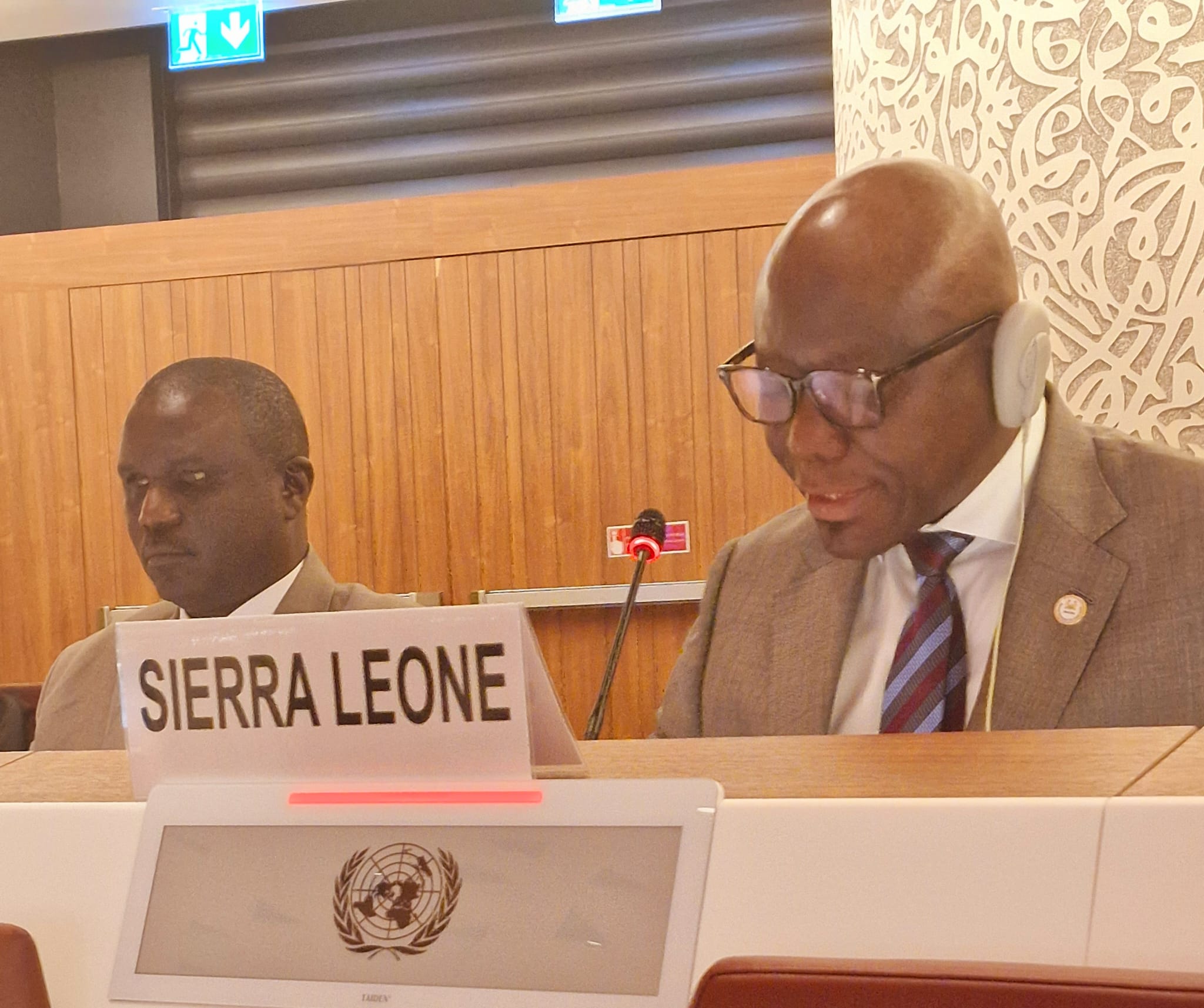Ambassador Ndomahina Pinpoints Reforms In Protecting Refugees & Displaced Persons
Ambassador Ndomahina Pinpoints Reforms In Protecting Refugees & Displaced Persons
Geneva, Switzerland Monday 10 October 2023 – At the High Level of the 74th Session of the Executive Committee of the United Nations High Commissioner for Refugees 9 October to 13 October 2023, the Commissioner of National Commission for Social Action (NaCSA), Ambassador Ernest Mbaimba Ndomahina, has presented that Sierra Leone under the leadership of His Excellency President Dr Julius Maada Bio, has initiated and rolled out several policy reforms with the view to safeguarding the fundamental human rights of all refugees and internally displaced persons within its territory, and has made tremendous strides in the promotion and protection of the rights of citizens.
Commissioner Ndomahina was speaking at the 74th Session of the United Nations High Commission for Refugees Executive Council in Geneva.
Ambassador Ndomahina informed delegates at the session that Sierra Leone created the National Commission for Social Action shortly after the end of the civil war in 2002 to provide essential services to displaced Sierra Leoneans and refugees from neighbouring countries, thus underlying her avowed commitment to protecting refugees and displaced persons in global solidarity to strengthen partnership.
Ambassador Ndomahina further noted that Sierra Leone has enacted several legislative and legal instruments to enable NaCSA to effectively deliver essential social services to displaced Sierra Leoneans, Refugees, and stateless persons.
“The enactment of the Refugee Protection Act of 2007, being an Act to provide for the recognition and protection of refugees in Sierra Leone domesticated the following international and regional normative frameworks: (i) Convention Relating to the Status of Refugees (Geneva,1951), (ii) Protocol Relating to the Status of Refugees (1967) and (iii) OAU Convention Governing the Specific Aspects of Refugee Problems in Africa, signed in (Addis Ababa (1969),” said Commissioner Ndomahina.
He assured the committee that Sierra Leone would continue to support the normalisation of lives of refugees and vulnerable persons, thus enhancing development of a road map for UNHCR disengagement with established structures, systems, processes, and procedures for a successor project, the “Tenki Salone” Project. The “Tenki Salone” Project is NaCSA’s mechanism of compensating host communities through the implementation of socio-economic infrastructure projects for concrete solutions and opportunities for the remaining caseload of 385 refugees in their respective host communities.
Commissioner Ndomahina said that: “Sierra Leone has developed a Statelessness policy, provided birth certificates for persons of concern (POCs) and remain committed to reducing statelessness by 2024. The Government of Sierra Leone in collaboration with UNHCR jointly developed an assistance framework for registered asylum seekers in Sierra Leone through which they benefitted from a one-off cash grant support.”
In concluding, Commissioner Ndomahina called on the Executive Committee to support processes that would strengthen international, regional and national human rights regimes and mechanisms such as the Universal Periodic Review (APRM), African Peer Review Mechanism (APRM) and National Human Rights Institutions (NHRIs) in a bid to mitigating the root causes that trigger wars and stemming the global refugee and IDP problems.
‘’In line with the Comprehensive Refugee Response Framework and the Global Compact on Refugees, the Government of Sierra Leone remains committed to providing protection and assistance to refugees, opening its doors for asylum seekers and stateless persons and helping them achieve durable solutions’’, Commissioner Ndomahina stated.
In his response, the High Commissioner of the United Nations High Commission for Refugees, Mr. Filippo Grandi, commended the Government of Sierra Leone for its tremendous drive-in making lives better for refugees, internally displaced Persons and Asylum-Seekers and enhancing development of a road map for UNHCR.
‘’In West Africa I hope you will allow me to take together the statements of Sierra Leone and Liberia, the two countries that in the past, I think I have said it before, went through very big challenges of conflict, there were many here which exodus of people from Sierra Leone and from Liberia, it was a central point of discussion and now I’m so happy that you are both talking about technical issues related to residual refugee case loads that you host, also improvement in the way that you manage the refugee case loads. Thank you for that. It is encouraging to hear that countries can move on from crisis to solutions. And in particular also, the role that you particular, Sierra Leone, have played in the solutions for the refugees, it is significant’’, High Commissioner Grandi said.
*For More Enquiries:
Mohamed Sheriff
Information Attaché, Geneva, Switzerland
+41791756648
Email: m.sheriff@slmge.ch

